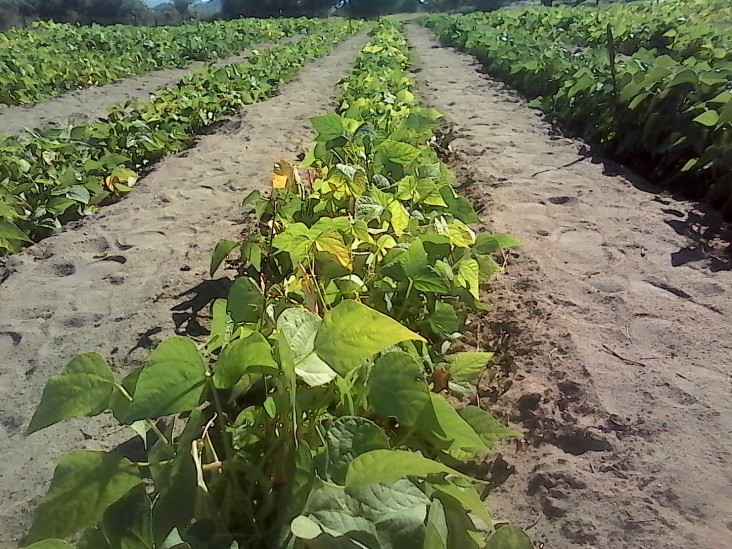
January 2016—For many years, Zimbabweans have been caught in a cycle of drought, poor soil fertility, weak harvests and suffering health. With a potentially record-breaking El Niño weather pattern forecasted for 2016, drought-vulnerable nations across the globe, including Zimbabwe, are bracing for another year of poor rains and dry soil.
To break the cycle of drought, poor health and poverty, USAID and implementing partner World Vision have focused on building sustainable and resilient strategies for growing enough food through a development food assistance project. The approach focuses on building farmers’ knowledge and skills, using resources they have available or that can be obtained locally.
In the Buhera district of Manicaland, the project promotes fertility trenches—a 2-foot-deep trench filled with organic manure in which farmers grow kale, cabbage and other vegetables. Off to the side, in the soil removed to excavate the trench, farmers plant sweet potatoes, beans and legumes. Farmers also use crop residues from maize, sorghum and grass to trap moisture in the soil, control weeds, and maintain cooler soil temperatures.
“We have managed to produce far higher yields of vegetables than before by using the fertility trenches,” said Benso Manjokota, chairman of the Buhera producers.
In southern Zimbabwe, in the community of Mahazu, new irrigation tools are bringing sustainability and resilience to the farming community despite ongoing cycles of drought. Over a five-month period, the community builds a 7-meter-tall dam, just in time to catch the first rains. This dam (and 20 others like it that will be operating soon around Zimbabwe) provide irrigation for farmers growing beans, tomatoes, groundnuts and other nutritious crops. The farmers can then eat these healthy foods at home year round, or sell them at local markets.
In Mahazu, 60 farmers using the dam to grow crops earned over $5,000 from their first-harvest sale of tomatoes in local markets. Soon, dams will serve 2,100 households in Zimbabwe, providing over 160 hectares of newly irrigated and farmable land.
An irrigation program has also helped Zimbabweans to build resilience to the droughts and erratic rainfall that wreak havoc on crop growth. As El Niño moves through the region, these tools will be especially important to ensure that communities have access to the food, markets and livelihoods they need.
USAID's food assistance project reached over 80,000 men, women and children in Zimbabwe in fiscal year 2015. Through improvements in farming practices, and training in business and financial services, 3,100 farmers participating in the project made sales totaling over $670,000 during the same period.
LINKS







Comment
Make a general inquiry or suggest an improvement.